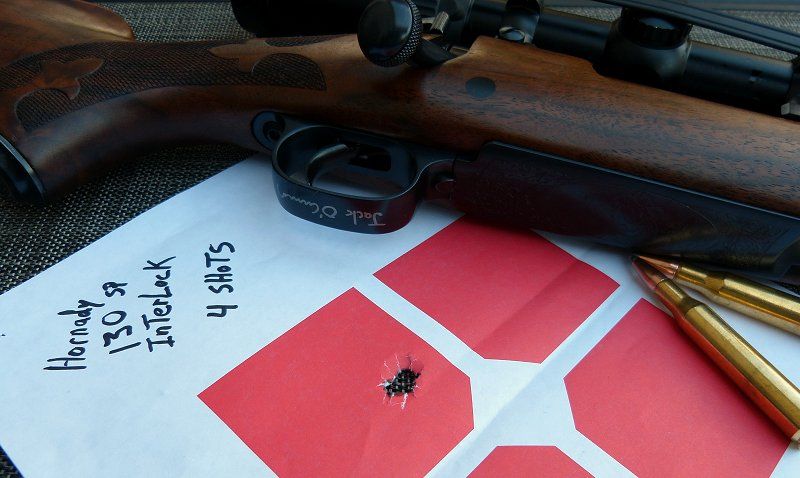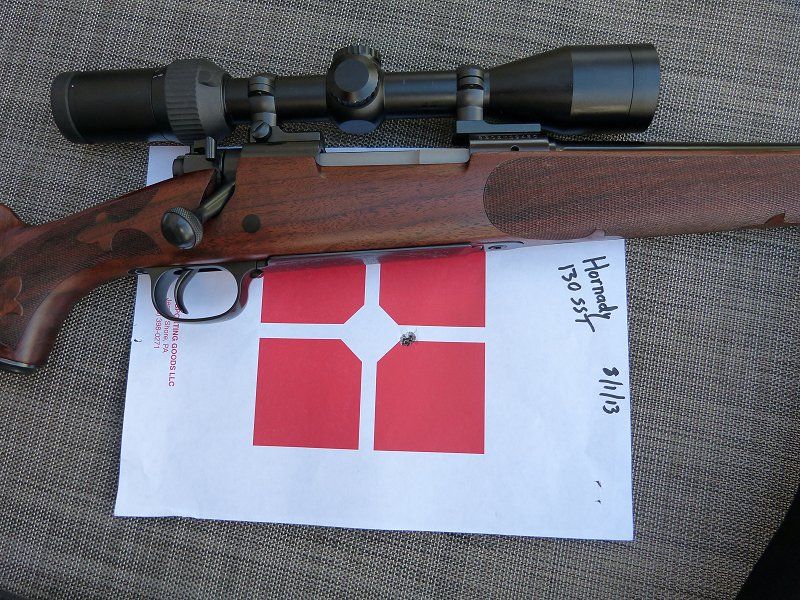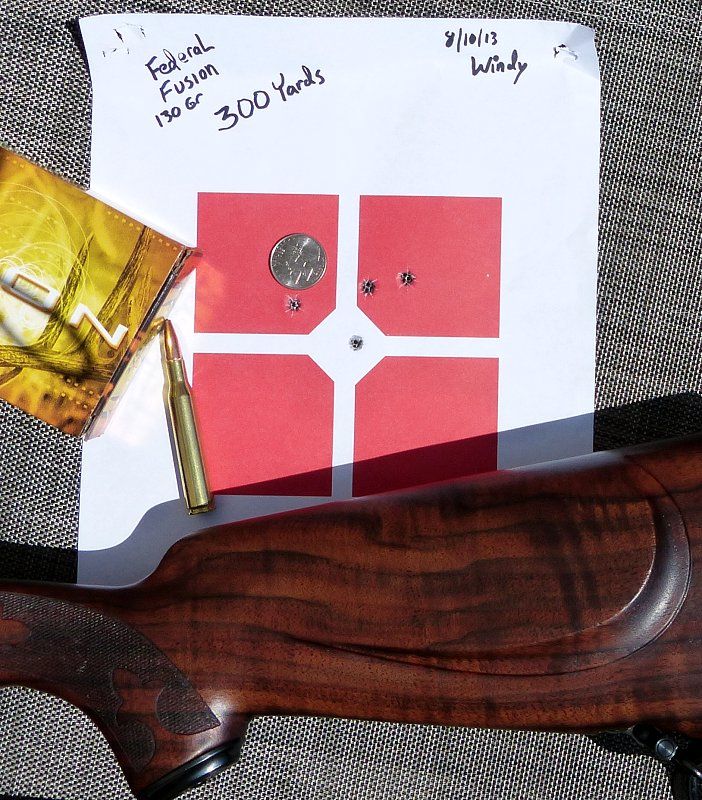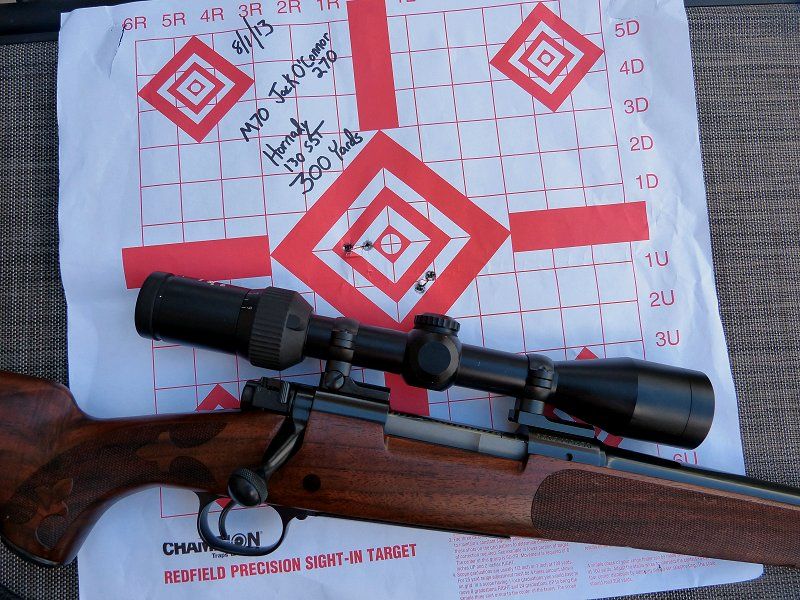I have been digesting many books over the last year from authors like Jack O'Connor and the like and about 20 years of the shooters bible. After 30 years of hunting and competitive pistol shooting, multiple Gunsite visits, etc...I still am amazed all the intricacies I am still learning about firearms and its wonderful.
Some myths that seem to be widely accepted but are not true....
Myth #1
A light weight barrel is not as accurate as a heavy barrel. This is not true. Any high quality lightweight barrel will be as accurate as any heavy barrel with in the first 4 shots all factors being equal. I never believed this until I saw it for myself. The reason is that it is easier to produce a cheaper heavy barrel rifle that is accurate. The stiffer barrel vibrates less and is less subseptable to heating up or showing a poor barrel to stock bedding. Many cheaper lightweight barrels or heavy weight barrels are not strait to start with. the difference is when the light weight barrel gets hot, they will start to unlink and start to string their groups. The heavy weigh barrel just takes more shots to see this. Therefore the quality of steel and manufacturing of a lightweight barrel has to be much higher than a thicker barrel. A lighter barrel must be bedded better than a heavier barrel because of the increased vibrations and fluctuations. This why cheaper heavy weight barrel guns like my Savage seems to be a tack driver even though the stock quality is rubbish. A well known custom gunsmith stated "it takes more skill to make a custom lightweight sportster rifle than it does a heavy weight barrel bench gun." This is why a high quality barrel isn't as sensitive to various bullet weights for repetitive accuracy.
A lightweight is just as accurate as a heavy weight barrel and will out shoot a poor executed heavy weight barrel. There is just more factors in manufacturing a light weight barrel that has to be done correctly for a high quality light weight barrel to shoot as accurate as a high quality heavy weight barrel.
I found this very interesting and wanted to pass it along.
Some myths that seem to be widely accepted but are not true....
Myth #1
A light weight barrel is not as accurate as a heavy barrel. This is not true. Any high quality lightweight barrel will be as accurate as any heavy barrel with in the first 4 shots all factors being equal. I never believed this until I saw it for myself. The reason is that it is easier to produce a cheaper heavy barrel rifle that is accurate. The stiffer barrel vibrates less and is less subseptable to heating up or showing a poor barrel to stock bedding. Many cheaper lightweight barrels or heavy weight barrels are not strait to start with. the difference is when the light weight barrel gets hot, they will start to unlink and start to string their groups. The heavy weigh barrel just takes more shots to see this. Therefore the quality of steel and manufacturing of a lightweight barrel has to be much higher than a thicker barrel. A lighter barrel must be bedded better than a heavier barrel because of the increased vibrations and fluctuations. This why cheaper heavy weight barrel guns like my Savage seems to be a tack driver even though the stock quality is rubbish. A well known custom gunsmith stated "it takes more skill to make a custom lightweight sportster rifle than it does a heavy weight barrel bench gun." This is why a high quality barrel isn't as sensitive to various bullet weights for repetitive accuracy.
A lightweight is just as accurate as a heavy weight barrel and will out shoot a poor executed heavy weight barrel. There is just more factors in manufacturing a light weight barrel that has to be done correctly for a high quality light weight barrel to shoot as accurate as a high quality heavy weight barrel.
I found this very interesting and wanted to pass it along.
Last edited:




